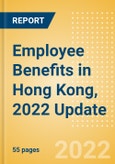Hong Kong's social welfare system provides cover to all residents in the event of disability, old age, death, unemployment, and sickness. The public pension pillar covers individuals in need of assistance. The occupational pillar, which is a compulsory defined contribution (DC) scheme, was launched in 2000, and the third pillar is a voluntary pension savings scheme. The Social Welfare Department (SWD) administers Hong Kong's non-contributory social security system, which includes the Comprehensive Social Security Assistance (CSSA) scheme, the Social Security Allowance (SSA) scheme, the Criminal and Law Enforcement Injuries Compensation (CLEIC) scheme, the Traffic Accident Victims Assistance (TAVA) scheme, the Support for Self-Reliance (SFS) scheme and Emergency Relief (ER). The main change to Hong Kong's social welfare system in the last decade was the introduction of the compulsory occupational pillar, the MPF. Before its implementation, any contribution to the occupational system was made voluntarily.
The report provides in-depth industry analysis, information, and insights of the employee benefits in Hong Kong, including an overview of the state and compulsory benefits in Hong Kong, detailed information about the private benefits in Hong Kong, insights on various central institutions responsible for the administration of the different branches of social security and the regulatory framework of the employee benefits in Hong Kong.
The report provides in-depth industry analysis, information, and insights of the employee benefits in Hong Kong, including an overview of the state and compulsory benefits in Hong Kong, detailed information about the private benefits in Hong Kong, insights on various central institutions responsible for the administration of the different branches of social security and the regulatory framework of the employee benefits in Hong Kong.
Key Highlights
- SWD and MPFA are responsible for the functioning of the overall social security system.
- A person's national insurance contribution is determined based on their income.
- An insured person who is unemployed or unable to work and whose benefits have been exhausted is entitled to credited contribution.
- In Hong Kong, employers provide voluntary retirement benefits to their employees through ORSO and MPFA schemes.
Scope
This report provides a detailed analysis of employee benefits in Hong Kong:- It offers a detailed analysis of the key government-sponsored employee benefits, along with private benefits
- It covers an exhaustive list of employee benefits, including retirement benefits, death in service, long-term disability benefits, medical benefits, workmen's compensation insurance, maternity and paternity benefits, family benefits, unemployment, leaves and holidays and private benefits
- It highlights the economic and regulatory situations relating to employee benefits in Hong Kong
Reasons to Buy
- Make strategic decisions using in-depth information related to employee benefits in the country
- Assess employee benefits of the market, including state and compulsory benefits and private benefits
- Gain insights into the key employee benefit schemes offered by private employers in the country
- Gain insights into key organizations governing employee benefits market, and their impact on companies
Table of Contents
1. Executive Summary3. Country Statistics4. Overview of Employee Benefits in Hong Kong5. Regulations
2. Introduction
6. State and Compulsory Benefits
7. Private Benefits
List of Tables
List of Figures








